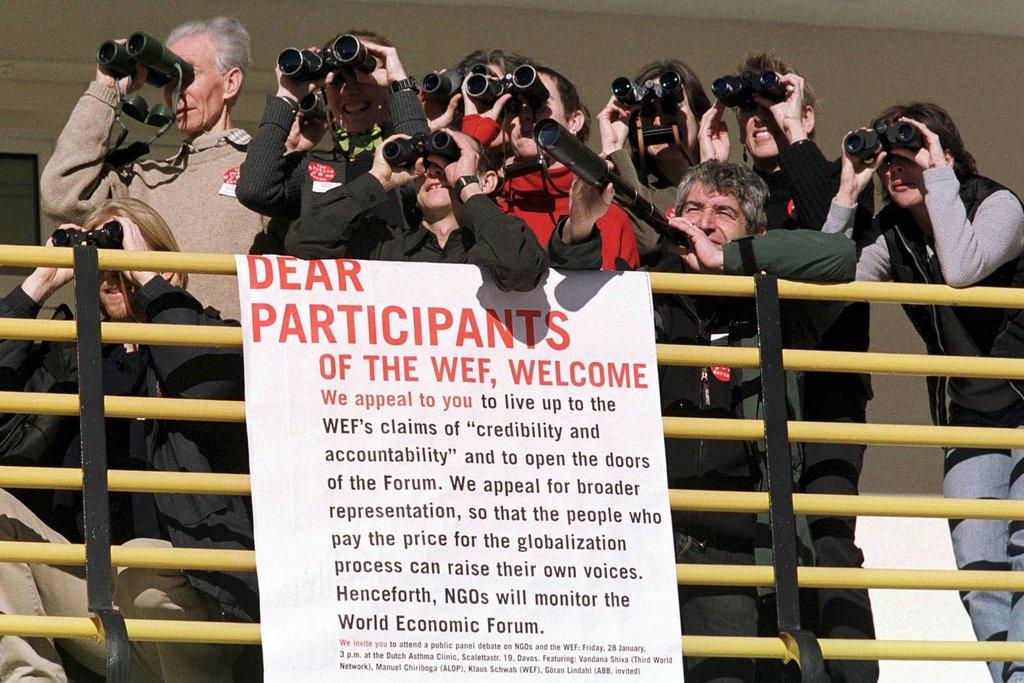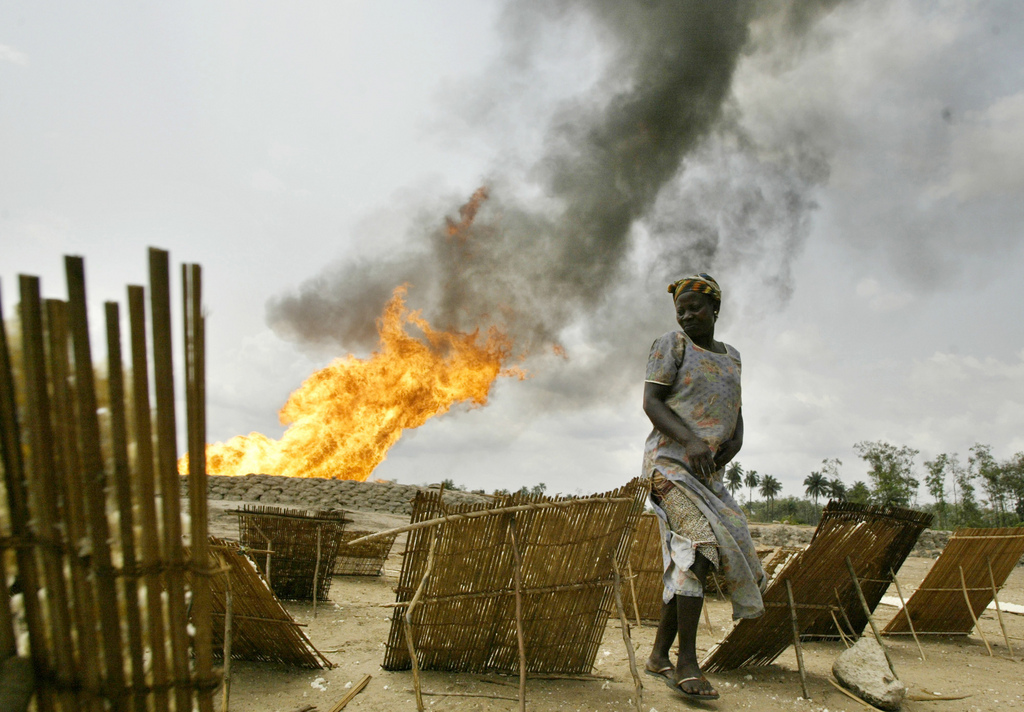‘WEF meeting has lost most of its symbolic meaning’

The plug is being pulled on a naming and shaming award for companies allegedly guilty of irresponsible business practices. The Public Eye awards will be handed out for the last time on Friday on the fringes of the WEF annual meeting.
The NGOs behind Public Eye no longer consider the mountain resort of Davos the right place to shed a critical light on cases of human and labour rights violations, environmental destruction and corruption. The Berne Declaration group launched its platform in Davos less than two months after the 1999 protests in Seattle against a summit of the World Trade Organization (WTO).
The events in the American city marked the beginning of the anti-globalisation movement which found its militant climax in clashes between angry protestors and security forces during the G8 summit in Genoa, Italy, in 2001.
“Davos served as a gateway for a small business elite to win access to influential political players and set the agenda in the process of globalization;” recalls Andreas Missbach of the Berne Declaration.
Discussions
In the early years the Public Eye on Davos was an alternative international conference with various discussion panels, taking place near the annual WEF summit. Facing increasing – and sometimes violent – opposition by anti-globalisation activists, the WEF meeting organisers opened up their event and created the Open Forum in 2003, a platform where the public was invited to talk to the political and financial elite.
WEF spokeswoman Michele Mischler says progress was made. “Nowadays the WEF is at the forefront of efforts to find solutions for issues which are very much in the interest of the NGOs. It made a huge effort to integrate these voices in its work.”
Mischler mentions that organisation, including Greenpeace or Oxfam, could participate in the WEF summit and share their concerns with representatives of the political and business community. The policy change also led to amendments to the anti-globalisation summit in 2005.
Launching the Public Eye awards, the NGOs were able to put rights violations and corruption by multinationals in the spotlight.
“This name and shame award allowed us to remind them of their responsibilities, challenging their image in public,” says Missbach.
In the early years anti-globalisation protests often turned violent with demonstrators and police clashing in Davos, Zurich or the capital, Bern. But the atmosphere has changed since the beginning of the protests around the turn of the millennium. In 2014 a small group of about 40 people staged an anti-WEF protest and leftwing groups appear to have lost interest in demonstrations.
The Green Party, one of the driving forces of the protests in the past , has not requested an official permission to organise a demonstration this year.
The Young Socialists in 2012 set up a protest igloo camp, branded Occupy WEF, but they have no plans for street action.
At a ceremony on Friday it will give out its ultimate prize, The Public Eye Lifetime Award. Six companies feature on the shortlist and the winner will be chosen in an online poll. The candidates include Walmart, Dow Chemical, Chevron, Goldman Sachs, Gazprom as well as the Swiss-based GlencoreXstrata.
Contest
WEF spokeswoman Mischler is sorry to see the Public Eye event disappear from Davos because it has contributed to the wider debate. “The WEF meeting is foremost a platform to exchange ideas. We need critical voices to make companies and the general public aware of the problems. It is a way to find solutions,” says Mischler.
Missbach is adamant that the annual WEF meeting in Davos is no longer “the ideal place to stake its claims.” The event has lost most of its symbolic dimension since the financial crisis in 2008/09.
“The typical ‘Davos man’ with his ultraliberal methods has run straight into a wall and has been completely discredited. The global capitalism had to be saved with the help of the states, the central banks and taxpayers money,” he argues.
“It is a great opportunity for top managers and politicians to bounce back and meet their partners,” he adds.
Going domestic
Marco Giugni, director of the Institute of Social and Political Research at Geneva University, takes a different view on the withdrawal of the Berne Declaration and its partner NGOs. He believes it is a logical consequence of the anti-globalisation movement in decline over the past few years.
“It is the way of all social movements. No doubt a lack of success has contributed to the general de-mobilisation,” he says. “The key aims such as a more egalitarian society, a less one-sided relationship between industrialised nations and the developing world or the establishment of a more grassroot democracy, have not been reached.”
However, parts of the anti-globalisation movement have moved on to other forms following a policy of financial austerity in Europe and elsewhere in the world. The debate has shifted to domestic dimensions.
Initiative
His observations have been confirmed by plans of the Berne Declaration. “We decided to join forces for a campaign by more than 50 organisations in Switzerland calling for responsible business practices,” says Missbach.
The coalition will begin collecting signatures in May for an initiative and a nationwide vote. The promoters call for mandatory due diligence rules putting pressure on companies to respect human rights and the environment.
The NGOs in 2012 already gathered more than 135,000 signatures for a non-binding petition, prompting parliament to request the government to put together a national action plan on business and human rights.
“There is no other country in the world with so many multinationals,” says Missbach.
“I mention only the particularly opaque commodity business. Even if many companies now write about sustainability or engage in philanthropic work, only a few of them are doing something to address the problems they have created.”
(Adapted from French by Urs Geiser)

In compliance with the JTI standards
More: SWI swissinfo.ch certified by the Journalism Trust Initiative












You can find an overview of ongoing debates with our journalists here . Please join us!
If you want to start a conversation about a topic raised in this article or want to report factual errors, email us at english@swissinfo.ch.